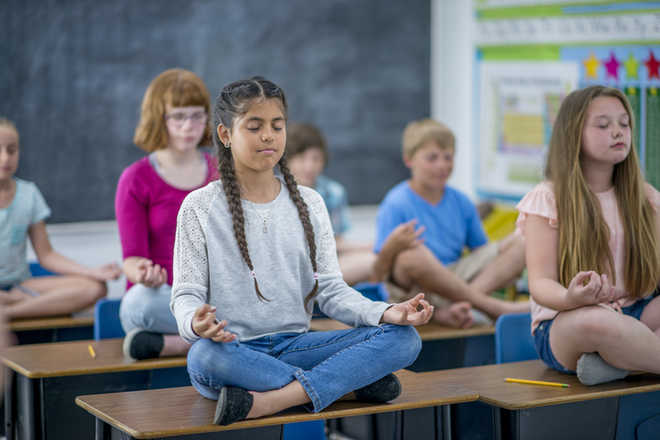
Photo for representational purpose only. iStock
WASHINGTON: Practising meditation as part of a school curriculum can improve the students’ social-emotional competency and reduce psychological distress, a study has found.
Social-emotional learning (SEL) is gaining increased recognition as an important goal of education. Competencies include self-awareness, self-management, social awareness, relationship skills, and goal-directed behaviour.
Developing these skills may help students perform better academically and enjoy enhanced emotional and social well being.
“There’s a strong body of research supporting the clear value of developing social-emotional competency for students,” said Laurent Valosek, Executive Director of the Center for Wellness and Achievement in Education (CWAE) in the US.
“Middle school is an especially formative time and poses a major opportunity to provide students with the tools to develop positive social relationships, responsible decision-making, and healthy behaviours,” said Valosek, lead author of the study published in the journal Education.
“We’re encouraged by the results demonstrating the value of a Quiet Time programme to enhance social-emotional learning and mental health in middle school students,” Valosek said.
The study compared over a four-month period 51 sixth-grade students who took part in a Quiet Time programme with twice-daily practice of Transcendental Meditation to 50 students from a matched control school within the same West Coast urban public school district.
The study found a significant increase in overall social-emotional competency in the Quiet Time group compared to controls.
The effects were particularly pronounced with high-risk subgroups, which experienced a significant increase on social-emotional competency and a significant decrease on negative emotional symptoms compared to controls.
Results on the individual items indicate improvement in the Quiet Time group compared to controls in the areas of decision-making, goal-directed behaviour, personal responsibility, relationship skills, and optimistic thinking.
These results have implications for schools looking to implement evidence-based programmes for student social-emotional learning and mental health, researchers said. PTI



























